Here is the second part of my interview with female umpire, Perry Lee Barber…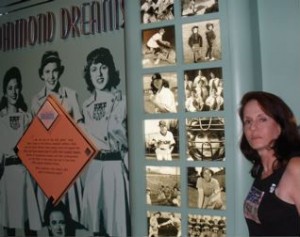
8. Who, if you can tell us, was/is the worst and was it because of their attitude in general or the fact that you’re a woman umpire?
I always suspect that the “attitude in general” has more to do with any hostility towards me than the fact that I’m a woman. In other words, my being female may evoke some hostility, but there’s usually more to the behavior than just that. Like the guy is just a jerk to begin with, and my being a woman merely provides a convenient target for his frustrations that otherwise have nothing to do with me. This is actually a very passive-aggressive approach to dealing with one’s emotions, and I don’t fault players for this, I simply regard it as their lacking the emotional tools to express themselves productively. I just let them know what I expect from them and what they can expect from me, and that I don’t tolerate any nonsense. I feel that if I set the parameters, set the tone, that whatever hostile attitudes are on display will dissipate as the game progresses, and if they don’t, I can take care of them other ways if it becomes necessary.
A few years ago a back-up catcher with the Mets took a real attitude with me for absolutely no reason as soon as I walked out on the field. I seldom have problems with the pros – they are pros, after all. Anyway, this catcher snorted dismissively when he saw me, glared for a moment, then said, “I hope you know what you’re doing, sweetheart.”
“I wouldn’t be out here if I didn’t, Todd,” I replied, smiling (let’s call him “Todd.”) “And my name is Perry, and I prefer to be addressed that way.”
“Perry, huh? What’s the matter, sweetheart, can’t you take it?” he sneered. Seriously. He sneered.
“Take what?” I asked, sort of innocent and astonished. “You calling me sweetheart when I’ve asked you politely not to? Oh, I can take that, no problem. I’ve taken more of that in my career than you could possibly imagine, so it actually doesn’t bother me at all. I just can’t imagine what kind of immature jerk would persist in doing that when someone has asked him courteously not to.” I smiled at him and turned and walked away before he had a chance to say anything else. So things are going fine during the game, and Todd comes up to bat and gets two swinging strikes, (“Immature but smart,” I thought, “he’s swinging.”) Then he fouls one off, then gets punched out on a beauty right on the outside corner, the kind of pitch catchers love when they call it and hate when they have to hit it. So he slams his bat down like a temper-tantrum-throwing two-year-old and stomps back to the dugout, cursing and fuming the whole way, then he takes his bat and slams it against the dugout wall, slams it against the water cooler, and just generally makes a lot of noise in there.
I didn’t have to do a thing; retribution was at hand in the form of a fan sitting all the way across the infield on the other side of the stadium. “Hey, Pratt!” the fan yelled (Let’s call the player “Todd Pratt.”) “Hey Pratt,” the fan yelled. “Next time, why don’t you try doing that when you’re up at bat?!?” The whole ballpark erupted in laughter, and I think maybe someone got his comeuppance. Whether or not he actually learned anything from the experience, I have no idea, but if he was wise he would have at least derived this valuable lesson: don’t mess with the sweetheart.
9. How do you respond when you see the blown calls like what we experienced in the 2009 playoffs (for example, the Joe Mauer ground rule double that almost was)?
That was my four-time Wendelstedt classmate Phil Cuzzi who made that call! Phil and I set and still share the record for consecutive trips to umpire school, four, in 1982, ’83, ’84, and ’85. So I respond like probably every other umpire who’s ever blown a call of some magnitude at a crucial point during a game felt when that happened – and we’ve all been there – like I’m cringing inside, but I want to hug Phil and tell him it’s going to be okay, because I know how horrible he feels. Trust me, no umpire on the planet wants to get a call wrong on purpose out there, much less accidentally, especially at the major league level where the scrutiny is so intense it would make a buddhist priest blush, and I know Phil was suffering, as was every other umpire who was caught making a mistake during the post-season. It seemed like it happened a lot last fall, but it seems like that every post-season, and when I see an umpire like Phil Cuzzi make a mistake like that, I have the benefit of being able to balance it against the tens of thousands of excellent, accurate calls I know he makes during the course of a single season and view it as an opportunity for him, and by extension, me, to improve rather than as a reason for me or anybody else to condemn him as incompetent, which he clearly is not. I also know he’s an amazing, positive, persistent, kind, and philanthropic person anybody would be proud to call friend or partner, which may tip the scales in his favor just a bit, but hey, so I’m prejudiced.
My take on that play is that Phil, in his hustle and zeal to get close to the play and get a good angle, actually got too close and made his call too fast. He may have also been moving or not completely stopped, still and set when the ball hit the ground, which may have disrupted his view. All I can tell you is, it happens to all of us, and it hurts when it happens to us and it hurts when it happens to someone else. We all try to do our best every play, every pitch, but human nature practically demands that we screw up once in a while exactly when it’s most critical that we don’t. Anyway, I certainly don’t see his blown call as a reason to crucify him the way so many fans did, or to say that I or anybody else could do a better job. But I do know I could get out there and screw things up as good as any of those guys!
10. How long do you plan on being an umpire?
Until they wheel me off the field. I do not plan on going gently into that good, shinguard-less night. And even after I retire as an active umpire, I’ll still stay involved in some way to help other women, other umpires.
11. What are some of the things a fan might not know about being an umpire that you can share with us?
That we don’t actually all suck. That we are real people who are out there offering a valuable service with the best of intentions, and we try to do the best job we can and provide a safe and fun environment in which the players can play baseball happily, in a spirit of good will and sportsmanship. That most of us really care about what we do and get intensive training and practice really hard and make sacrifices and spend money on uniforms and equipment so we look professional, and give up time with our families and friends to devote to umpiring so the players can play, and don’t ask for any undue appreciation or respect, just what we earn and deserve.
That working in a professional league, especially the lower minor leagues, is a grind, and umpires get tired and weary and discouraged but always strive to leave that behind when we step out on the diamond so we can run an efficient, smoothly-flowing ballgame with a minimum of disruptions that everyone, players and spectators alike, can enjoy. That not all umpires are embittered, failed ballplayers seeking revenge for their unfulfilled dreams, but people who take up the profession because we love it, because we feel we’re contributing something important to the game we love and to our communities, our schools, our local associations, because in umpiring we find emotional challenge and positive energy and mental stimulation and the opportunity to continually evolve as people and officials, and it offers us a platform from which we can reach out to other people in ways that might help them and do them good. That what I’ve learned from umpiring has helped me with my relationships in my daily life, not just the way I conduct myself on the field. That we don’t do this for the money or the glory – that’s self-evident, except at the major league level – we do it for the love of the game.
12. Has any of the previous women umpires ever contacted you to encourage you or out of a desire to want to stick together, share stories, etc.? And have you done the same to mentor other women umpires?
Thank you so much for using a verb that agrees with your singular subject, “any,” in that first question, Pete. As a grammar maven, I salute you!
And the answer to your question is, absolutely. There are so few of us it hasn’t been hard to round up most of us who are out there doing it. My friend and sometime partner Kate Sargeant started a website called womenumpiringbaseball.com that’s a gathering place for us, and we’re a small but growing community. I believe it’s absolutely crucial to the growth and progress of women umpires that we support and watch out for one another. I’m convinced that a glaring reason women have made so few inroads into pro ball is that we have always been hired one by one, singly and intermittently rather than in twos or groups. That way, there’s no infrastructure of support and positive feedback for us the way there is for the men, who are drafted into the baseball culture in utero. Women have no such advantage and consequently have to fight our way into the sandbox, and when we get there, there’s always only one of us, so we hang in there as long as we can, then when it gets lonesome and we’ve served out our usefulness as sops to the myth that baseball welcomes women’s participation, we get fired for cause and the next woman comes along and starts out at the bottom all over again a few years later.
It’s not working for us this way; we have to get an influx of lots of women into the lower rungs of pro ball all at the same time, so gradually as they progress through the minor league system, two or three or more will advance simultaneously. What a concept! The NBA hired two women officials at once back in 1998, and one of them, Violet Palmer, is still in the league eleven years later.
So yes, my dreams of umpiring major league baseball are not for me anymore but for another woman, one I may even find and recruit and train myself. That would be my dream, that a woman I recruited or trained made it to the major leagues. Kate and I are helping get umpires for a camp next summer run by Justine Siegal, the first and so far only woman to coach a men’s pro baseball team (she coached the Brockton Rox in the independent Can-Am league last summer). Justine also coaches a couple of all-girls’ baseball teams, and is putting on this camp where several hundred girl ballplayers and their parents, as well as umpires, coaches, and administrators, will be gathering in northwest Massachusetts over the July 4th weekend next summer to learn from and feed off each other and get one huge estrogen buzz. Whew. I can’t wait. And I’m working on an idea that will bring the largest gathering of women players, umpires, coaches, and administrators ever to a place that will be heaven on earth the spring of 2011, and as it takes shape I’ll keep you advised about it because it’s going to be something extraordinary that’s never been seen or done before, and it will make a joyful girlish noise that will not be drowned out.
13. How have you been treated by other umpires? Who has been better/worse? Other umpires, players, coaches or fans?
Most of my partners have been fantastic, or at least tolerable. A very few have been absolutely horrible. It’s always worse when a partner sells you out than a coach or manager or fan, because umpires have only their partners on whom to rely out there so the betrayal cuts much deeper. The mistreatment is a small part of the whole experience that I’ve learned to accept and value for the chance it gives me to rise above it and change it into something positive from which I can learn and benefit.
14. Has being an umpire affected your social life? How? Do people get intimidated by you or feel like you are a control freak just because you’re an umpire?
A control freak? Moi? I’m one of the most laissez-faire people you’ll ever meet. I don’t bother nobody, and nobody bothers me. I don’t regard umpiring as a chance to exercise my authority or throw my weight around, but as a sacred charge to make sure that everyone has a safe environment in which to play and enjoy a ballgame. After that, everything else is gravy. I set the tone at the home plate meeting, and set the pace from the first strike I call by keeping the ball in play, keeping the batters in the box, not calling time or handling the ball unless I absolutely have to, getting the ball back in play immediately after one is fouled off, and calling as many strikes and outs as I possibly can while still being consistent and fair. The biggest effect my job has on my so-called social life is that I don’t have one. Just kidding – I have lots of friends and guy friends, and it’s sometimes hard on them when we’ve made plans and a projected five-hour doubleheader turns into two extra-inning nightmares that go on and on until I have to call it because of darkness or something. Most of the time I just don’t make plans on days when I’m working, which from February through November is all the time.
I don’t think people are intimidated by me at all, on or off the field, at least I’d be surprised to learn they are. I’m not exactly statuesque or physically imposing – why, buttah wouldn’t melt in mah mouth! When I meet people away from the field and they find out I’m an umpire, most of the time the reaction is one of intense curiosity and wonderment, and they start asking all kinds of questions, which I love, because I love enlightening people about what we do and how and why we do it. Umpiring is such a mystery to most people, even the ones who have a pretty good grasp on other aspects of baseball. And learning about why someone like me does what I do fascinates them even more. I talk to school groups and women’s groups all the time about my career. Maybe one day I’ll find out that something I’ve said or done has inspired another woman (or boy or man) to start umpiring. Maybe it’s already happened. I like to imagine that it has.
15. Did you ever umpire a Colorado Silver Bullets game or a Brockton Rox game when they had a woman first base coach (as you already mentioned, the first woman coach in professional men’s baseball)?
I umpired a Silver Bullets game in 1996, the same summer I was the TV color analyst for the Hudson Valley Renegades in the New York Penn League. Brian Kenny, now with ESPN, was my play-by-play partner; he had actually gotten me the announcing gig, as I knew him and his wife Nicole from when they stayed in my apartment one winter while I was gone to Florida and their oldest daughter was dancing in The Nutcracker over at Lincoln Center, so they moved into Manhattan temporarily rather than commute every day from their home upstate in Kingston, near Poughkeepsie. I had gotten married – at age 42 – in 1995 and was living most of the time with my husband in New Canaan, Connecticut, and the announcing gig landed in my lap just after I got back from running a Junior Olympics tournament down in Fort Myers that my husband was very unhappy about my going off and working. So the Renegades gig was fabulous, I’d take my step-daughters with me to the ballpark, the three of us would pile into my 1990 red Pontiac Firebird with the T-tops off and drive from New Canaan to Fishkill on these little back roads that wind past the most amazingly beautiful, intricately assembled stone walls – you see them all over Connecticut – and Courtney and Tracy would hang out with the ballplayers and have a great time while I made like Red Barber and Brian taught me the announcing ropes. I loved that job, I did it for two years. It paid five hundred dollars a game, just from this little suburban TV station, RNN! One night I sang the National Anthem (I was a last-minute sub for a singer who didn’t show up) and then announced the game. That was fun. Over in Japan in 1989, the Orix Braves (now the Blue Wave), the team that hosted me, were nice enough to ask me to sing the American National Anthem before a game I umpired (back then, each Japanese team had two American players, or gaijin, on them, so my singing our anthem wasn’t such a stretch). I have a photograph of me strumming my guitar and singing in my umpire’s uniform in Kobe Green Stadium that I treasure. Anyway, back to the Bullets; I worked a game for them somewhere that summer, can’t remember where, but Phil Niekro was the manager and he came out on me on a play with those puppy dog eyes. So adorable. The Bullets held their own for three innings, then faded down the stretch, meaning the last two-thirds of the game, due to lack of pitching and defense, and also because the other team was pretty much teeing off on their pitching. That was my first experience with women playing baseball, and it was very exciting for me to be on the field with them as well as instructive to see how we wound up interacting.
I was in Alaska last summer when Justine Siegal, whom I mentioned earlier in relation to the ever-expanding universe of women who play, coach, umpire, and administer baseball, was coaching for the Brockton Rox, so I didn’t meet her until that gig was over for her and she was screening a documentary titled “The Girls of Summer” about her all-girls’ baseball team up at the Hall of Fame last September. Since then we’ve become good friends and have pledged assistance to each other in whatever enterprises we dream up to bring the community of women in baseball together and help it grow. Kate Sargeant and I are getting the umpires together for this big camp Justine is organizing for July 4th weekend, and we have some other irons in the fire that will turn out to be magnificent, totally original celebrations of baseball for all, which is what it really should be and in our world, is.
16. What is the umpire’s locker room like & are there any changes made to them when you work a game?
In amateur baseball, sometimes my “locker room” is my car. I’ve learned to be inventive and fast. In pro ball and at some schools, we get locker rooms, and there’s often some partition or separation of areas, like the shower stalls, that allows me to change in relative modesty. If not, I’ve never worked with a partner who refused to share a dressing room with me, or who didn’t volunteer to wait until I was showered and changed. It’s just never been a problem. Oh wait, one time it was a problem. I was working the Roy Hobbs in Fort Myers, and they’re super-senstive about issues of gender there for some reason, the tournament directors don’t want women umps changing with the guys. They’re worried about a lawsuit or something, I guess. Anyway, I was re-assigned at the last minute to a complex where there was nowhere for me to shower or change. I agreed to the change with the proviso that if the other umpires didn’t object, I would shower and change by myself while they waited outside and then they would go in. This wasn’t unreasonable on my part: I think it was eighty degrees and sunny, and I was working by myself, wearing all that plate gear and doing the work of two umpires, so I was definitely going to need to shower and change afterwards. So when I get there and explain to the other umpires what happened, that I’m actually saving the assignor’s ass by coming to this complex where she promised me I wouldn’t have to work because of the facilities problem, nobody minds at all if I use the shower after my game. Nobody minded except this one umpire, the one jerk in every crowd, who also happened to be – the assignor’s husband! He gets all red in the face and tells me I better not go in there, only men allowed, blah blah blah. I couldn’t believe it. So I just said fine, no problem, and of course I timed it perfectly so I finished my game before anybody else did. I scooted into the locker room, showered, and was putting my clothes back on when I hear outside the door, “Perry, Ray’s heading this way.” It was one of the other umpires, bless him, standing watch over me. It also happened to be an umpire who, in his real job, is a preacher named Dave Schmidt, a man of God who thought it more Christian to stand guard over me as I bathed away the afternoon’s sweaty toils than to obey the self-righteous bleatings of an insensitive bigot. I strolled out of the locker room past the Reverend, standing there with a mischievous grin on his face, and then right past Ray as he stormed up, all mad because we had outfoxed him. Remember the part about don’t mess with the sweetheart? The next day, I arrived back at the other complex and started hearing rumors that Ray had an accident so terrible he was sent home from the tournament. It turns out he slipped and fell in the bathtub that night, trying to wash away his sins, I suppose, and broke his leg, a nasty compound fracture, ugh. Very strange, don’t you think? What’s even stranger is that in subsequent years, Ray and I became pretty good friends, and I found out he was actually a pretty decent umpire and partner. So was his son, Ray Jr.
17. If you weren’t an umpire or in the music business, what do you think you’d be doing?
Writing my book, which I’ve been writing forever. Maybe I’ll finish it before I die, maybe afterwards. Or being an investigative reporter, in the old-fashioned sense, meaning that I would actually investigate and report, not just write things down that someone tells me and then leave it at that. Or starting my own country, one where we actually honor our constitution and don’t continually start and perpetuate unjust wars, where we care for each other and don’t procreate irresponsibly, where we allow the people to govern themselves peaceably and worship and live as they please as long as it doesn’t infringe upon anybody else’s right to worship or not worship as they please, and help them grow nutritious crops and be healthy, happy, creative, industrious, artistic, and prosperous. Or building a time machine to take me back to 1905 so I could watch Christy Mathewson pitch any one of his three complete-game shutouts in the World Series that year, a record that still stands and probably always will. Or any number of stimulating, challenging things. Or maybe just lying in a hammock somewhere getting a sunburn while sipping a virgin pina colada.
18. What was your favorite moment as an umpire and does that differ from your proudest or most satisfying?
Good distinction; my favorite moment wouldn’t necessarily by my proudest or most satisfying. I have many favorite moments, as a matter of fact. They’re sort of all favorite moments, now that I think about it. Working any spring training game, because of course major league baseball, even during March, is just played on a higher plane than any other baseball. Any time I see the light dawn in a ballplayer’s eyes and I know he’s actually learned something constructive from an encounter we’ve just had. Hearing little kids tell their parents, “Mommy (or Daddy,) I didn’t know girls could do that!” and realizing I’ve just expanded their universe (Tempered by regret that it’s only because we are so few that comments like that get made in the first place).
My proudest: definitely walking out on the field with a crew of three other women for a Mets spring training game in 2008, the first time a four-woman crew umpired a major league game. The first time, but not the last. One day, it will become so routine it won’t even be worthy of mention.
19. What do you like most/least about being an umpire?
What I like most: everything. The fun, the travel, the constantly fluctuating parade of human nature and activity, the mental challenge, the physical demands, the camaraderie of working with partners I respect and like, the rituals of getting dressed and preparing for a game, the rituals we engage in during a game, the psychological exercise of dealing with so many different personalities, hanging out after a game and discussing various plays with my partners, the cachet with which it imbues me among my friends, who think it makes me exotic or something. The giving back, the sharing, the caring, the journey. Good food in the clubhouse after a game.
What I like least: working in the freezing cold. Working on fields where geese leave their turds everywhere. Parents and coaches who rob their kids of the joy of playing baseball because they make it all about winning or impressing a scout instead of having fun and being a good teammate. Feeling like I have to go to the bathroom in the third inning of a nine-inning game. I’ve never yet had to abandon my post during a game! Working with lazy partners who expect their partners to carry them, although this is also a challenge to be met head-on, with good cheer. Bad food in the clubhouse after a game.
20. What rule changes or new rules do you think has been the best/worst you’ve seen implemented since you’ve been an umpire?
The best one, hands down, was added in 2006 and reads as follows: Rule 2.00, definitions of terms: Any reference in these Official Baseball Rules to “he,” “him,” or “his” shall be deemed to be a reference to “she,” “her,” or “hers,” as the case may be, when the person is female. After that, the batter’s box rule (6.02 (d) – the batter shall keep at least one foot in the batter’s box throughout the batter’s time at bat unless one of the following exceptions applies…. and then there are eight specific exceptions – is one of the best rules added in recent years. The trick is to get umpires to enforce it. I don’t like it when batters mess around, taking a year to fix their gloves and get into the box, then stepping out and back in, slowing everything down. I tell them, please keep one foot in the box, and often they’ll look dumbfounded, as if they’ve never heard of the rule or been asked by an umpire to do this, when I’ve specifically gone over it with the manager during the home plate meeting and asked him to make sure to relay the information to the players that there is to be one batter on deck and only one anytime a batter is in the box, and that batters are to stay in the box once they step in. Which of course I know most of the coaches never mention to the players, so it’s no wonder they look dopey when I tell them to stay in the box. “Can’t I fix my glove?” they’ll whine, or “I’m getting my sign.” “You can fix your glove or get your sign without taking a ten minute walk around the block,” I’ll admonish them patiently, then if they continue to futz around I’ll tell them, you better stay in the box, I don’t want to call a strike on you but I’ll have to if you don’t stay in there. Most of the time they get the message. Sometimes one will say, “Why do you have to call a strike on me?” “Because it’s the rule,” I’ll say. “Is it really a rule? they’ll ask. Oy. I’ve never had to call a strike on a batter for not being in the box or for stepping out. I had a partner who did once, and he definitely jumped the gun. It was embarrassing as hell and totally unnecessary and started the game off on a terrible note. He wound up ejecting the batter, whom dozens of scouts were there to see, before two were out in the top half of the first inning! But most of the time, like I said, hitters get the message.
21. Please tell our readers about your blog and website? Why did you start them & what purpose do they serve?
I started my website, www.perrybarber.com, a few years ago just because it seemed like a good idea and I didn’t want somebody else to do it first. Although umpires generally prefer to operate in obscurity, I don’t mind shining a light on what I do because I think it leads to better understanding of what all umpires do by all people. The more I can illuminate what we do and why we do it, the better for everybody, the better for baseball.
I started my blog, Dishing It… and Taking It Too, two years ago, just because I like to write on a variety of subjects, and blogging provides an immediate outlet for my literary escapades.
I don’t know if the blog or the website serve any purpose larger or nobler than that; they’re mostly for my own amusement, I suppose. But I like making use of available technology, and don’t fear advances in that area, but try to adopt them with some degree of proficiency. I’m not technologically very adept; I use my laptop primarily as a typewriter, but I do like staying in touch with people and making new contacts by using Twitter and Facebook and LinkedIn and such. I got my gig umpiring in Hong Kong via a website called checkswing.com, through which I was connected to some women ballplayers who were already going to the tournament, and they invited me to go with their team, and voila. I still can’t believe it. If only the rest of life were that simple.
That’s the end of the interview, but I also received her permission to print this along with it. Just to let you know, she repeats part of this in her answer to my first question. After reading my site and the World Series about to begin at the time of my asking her for an interview, she waxed poetic on the following flashback into her life…
Because I was such good friends with Rich (Ashburn: broadcast partner of Hall of Famer Harry Kalas
), I pretty much had carte blanche to go visit him and Harry Kalas and Chris “Wheels” Wheeler in the announcers’ booth both down at Jack Russell in Clearwater – that was before Brighthouse Field – and at the old Veterans’ Stadium in Philadelphia, anytime I wanted to. Down in Florida, my aunt Pat and I would hang with them, Rich puffing away on his pipe while he described the action and bantered back and forth with his partners. His was the only kind of tobacco smell I’ve ever been able to stand, and I actually liked the kind he smoked. Back in the mid-nineteen eighties and early nineties I used to umpire a lot of the Phillies Phantasy camps in Clearwater, which has been my winter residence since 1983; that’s how I got to know all of them. The rules about fraternization among umpires and club personnel are a lot more relaxed in that kind of setting, and Rich really kind of adopted me and was so kind and dear to me all the rest of his life. He wrote this wry little piece about me for his newspaper column one time, and always looked after me like a doting uncle would. Anytime I or aunt Pat wanted tickets to a game anywhere, they were ours. Rich got me a gig singing and playing the National Anthem at the Vet in 1987, I think, and I still have a photo somewhere of me standing there at home plate, my favorite umpiring crew of Eddie Montague, Dutch Rennert, Lee Weyer, and maybe Randy Marsh or someone nearby, standing at attention with their backs to me as I’m strumming my guitar and wailing away. If I can dig it up, I’ll e mail you a copy. It was a very special occasion for me, and I had Rich to thank for it; as I got more into umpiring, the less priority my previous ten-year semi-career as a singer/songwriter/guitar player took, so I was winding down my performing days at that point. I actually had a real job back then, working near Carnegie Hall in the management and booking offices of the company that handled Gladys Knight and the Pips and B.B. King.
Rich was just a warm, earthy, authentic guy, and I’m lucky he came to be fond of me. I never got tired of asking him about Cal Abrams and that play – Rich never thought his throw was all that spectacular, as he was playing shallow, but it certainly was memorable! – and got to know other Whiz Kids like Granny Hamner and the lovely Andy Seminick, as bowlegged as they come but a cheerful and dependable catcher for that amazing team of my pre-youth. I’m 56 years old, born in May of 1953, the second of identical twins, and came upon my love for baseball by reading about it as if it were a subject you study in school but really, really love doing the homework for. I originally wanted to be able to beat a friend of mine at baseball trivia , that was my sole motivation for buying a few books about it in April of 1979 and suddenly discovering its archive of extraordinary and riveting literature, filled with the marvelous exploits of Christy Mathewson, my all-time favorite player, and the New York Giants of Matty, Fred Merkle, John McGraw, Roger Bresnahan, Chief Bender, peripheral characters like Charles Victory Faust, and of course, the umpires. In May of 1981 I read a book titled the Men in Blue: Conversations With Umpires by Professor Larry Gerlach, and it changed my life. A year later, my mother convinced me to don one of those old balloon-style protectors and start umpiring little league out in southern California where she was living by then, so for some crazy reason I did, and was an abject failure at it my first game – so inept that people wrote letters to the local paper raging about how terrible I was, couldn’t tell a fair ball from a foul, and let a game for ten-year-olds turn into a three-and-a-half hour nightmare, all of which was true, but I was not so much stung by the vituperation as I was spurred by it, challenged, and somehow spiritually enlightened by it all. I went to Harry Wendelstedt’s umpire school in Daytona Beach, Florida the next January of 1982, and never looked back. Working those Phillies camps was so much fun; I had read all about those guys before meeting them, and it was as exciting for me to be around them as it was for any other fan. I miss those days, and Rich and all those guys no longer with us, Kalas, Hamner, Seminick, and my wonderful pal and instructor, Lee Weyer. When I was severely injured in a car accident out in Los Angeles right after I got out of umpire school in 1982, Lee came to visit me in the hospital every single day. He’d sit at the foot of my bed doing magic tricks for all the nurses, hopelessly enchanting them, and me too. He, like Rich, died of a massive heart attack, Lee in July of 1988 and Rich in 1997 while he was here in New York.
To me, being a Harry Kalas fan, that was almost as good as the interview itself!
Perry, I’d like to thank you once again for agreeing to do this interview. Please feel free to visit the site & share your thoughts on baseball with us! Your voice is always welcome on the pages of Baseball Reflections.


![Reblog this post [with Zemanta]](http://img.zemanta.com/reblog_e.png?x-id=3e29bf98-2550-42ca-ac26-fdd5f40e4200)
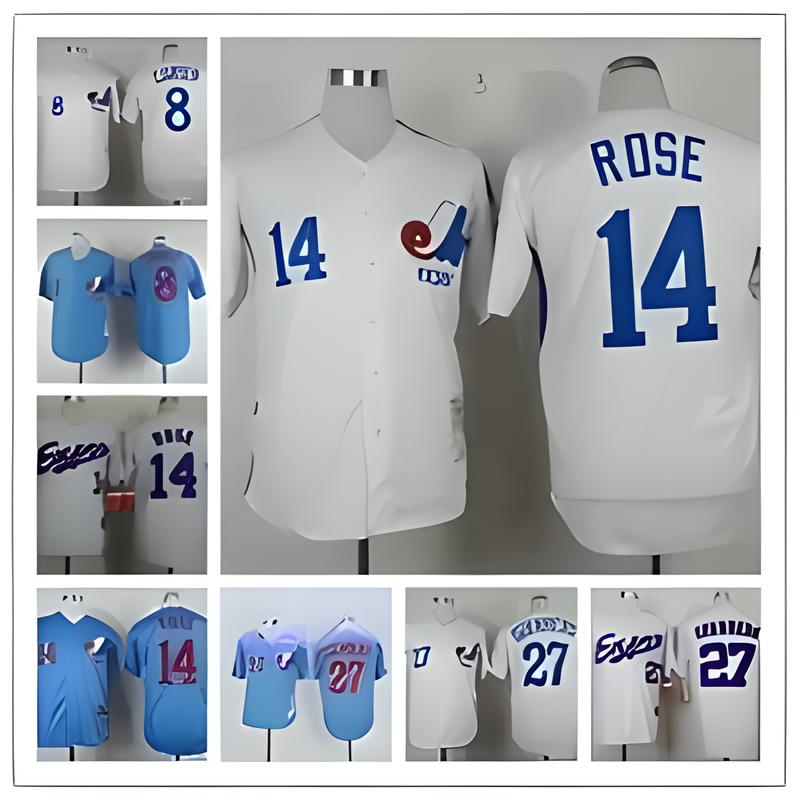


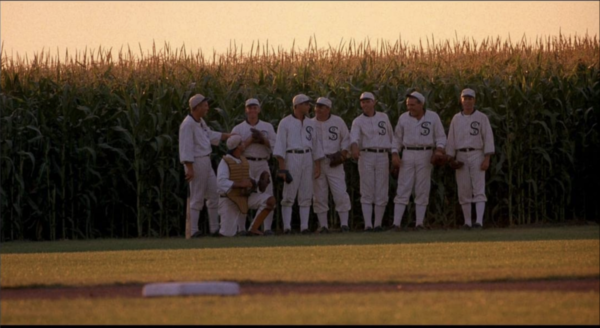

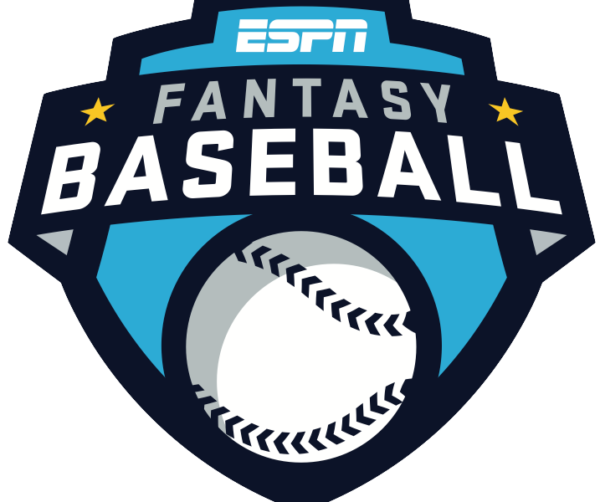
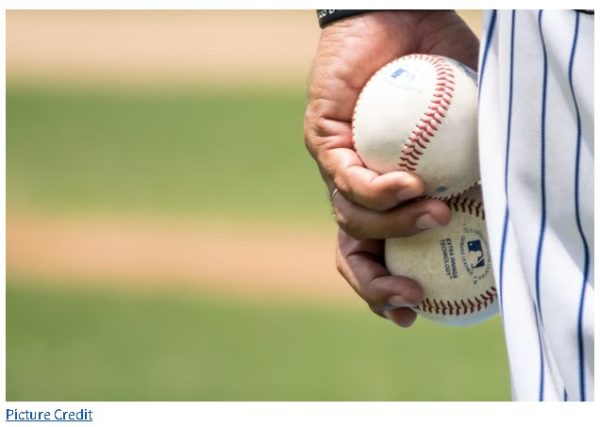
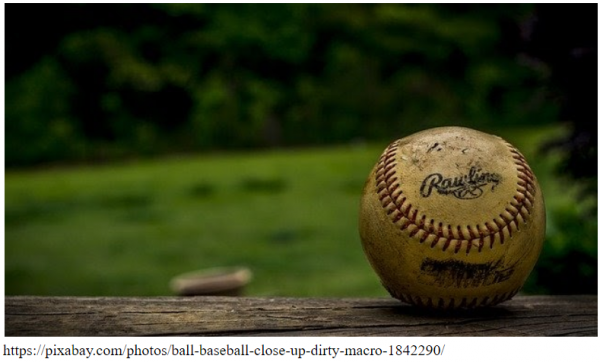

3 Responses
Very informative artice
Thank you, did you read part 1?